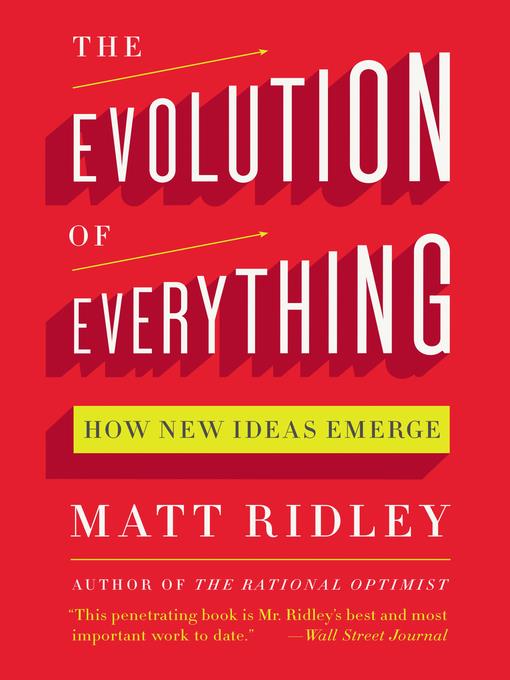
The Evolution of Everything
How New Ideas Emerge
کتاب های مرتبط
- اطلاعات
- نقد و بررسی
- دیدگاه کاربران
نقد و بررسی

July 6, 2015
Working from the idea that evolution is “happening all around us” and is “the best way of understanding how the human world changes, as well as the natural world,” Ridley (The Rational Optimist) looks at how numerous facets of society and nature develop and change over time. “Evolution is far more common, and far more influential, than most people recognize,” he says. The book’s primary argument is that, more often than not, there is no rational mind or organized decision-making behind the development of common concepts or widespread phenomena, but an unconscious reaction to an immense variety of factors. “The genome has no master gene, the brain has no command center, the English language has no director, the economy has no chief executive,” he states. Ridley observes this principle in culture, government, and technology. There’s a lot of information to work through, but the reasoning is sound and arguments are well-supported with historical precedent and general observation. While the premise may not sit well with everyone, Ridley provides enough evidence to support his claims and generate no shortage of debate. Agent: Peter Ginsberg, Curtis Brown.

June 15, 2015
A New York Times best-selling science writer with best book nods from the Los Angeles Times and the National Academies of Science--and a viscount to boot--Ridley argues that ideas aren't designed, then signed, sealed, and delivered by authoritative sources. Instead, they rise like bubbles from the bottom up, twisting and turning into view as a pattern finally emerges. Morality, culture, the economy, personality, history, God--all are endlessly evolving.
Copyright 2015 Library Journal, LLC Used with permission.

























دیدگاه کاربران